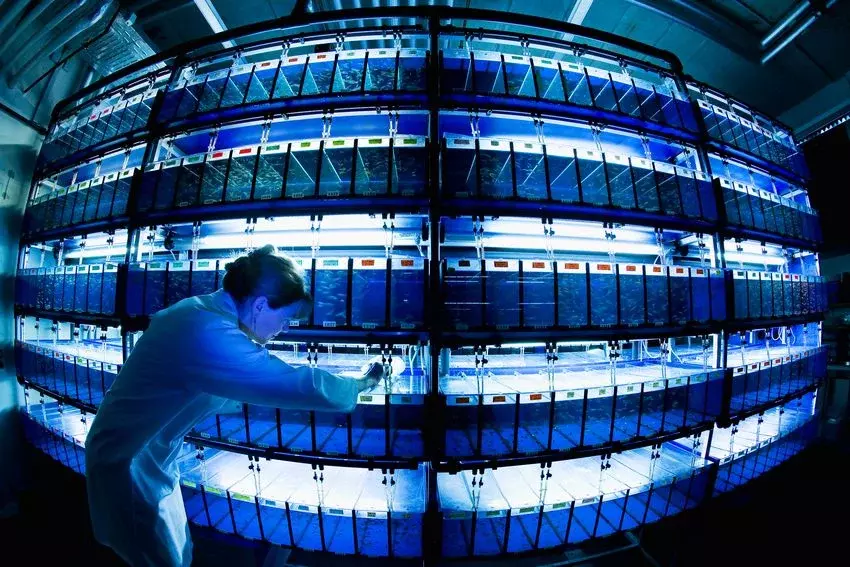Unveiling the Secrets of Life
How do cells organize themselves into tissues? How are organs formed from these tissues? About 550 researchers from 41 countries are addressing these questions at the Max Planck Institute of Molecular Cell Biology and Genetics (MPI-CBG) in Dresden.

The aim is to combine research in the fields of cell biology, organ development, tissue homeostasis and regeneration/repair with biophysics and to put the knowledge gained into practice. Around 550 people from 41 countries work at the MPI-CBG.
In addition to model organisms such as zebrafish, the institute also works with artificial organ-like microstructures, so-called organoids. By cultivating stem cells and precursor cells into functional, organ-like compositions, it is possible to research tissue growth in 3D and gain insights into the function of molecules in tissue. If we know the molecular, cellular and physical principles of self-organization, we can investigate how these change in diseases. Organoid research has already led to the cure of previously incurable diseases such as cystic fibrosis.
Another area of research is the use of macromolecular therapeutics.To this end, the MPI-CBG has developed a method for the development and characterization of delivery systems for such drugs. The group investigates the uptake and intracellular fate of macromolecules such as nucleic acids and proteins in cells and organs in vivo, particularly in the liver.Using imaging techniques and image analysis, they determine the parameters to be optimized in order to ultimately improve the efficacy of macromolecular therapeutics.
Groundbreaking findings
Two research groups at the MPI-CBG have made a revolutionary discovery: They discovered that liquid-like compartments in a cell can become solid over time. Condensates then form - clearly defined, membraneless organelles that, on their own initiative, use disordered protein areas to organize specific proteins and nucleic acids in cells. Better understanding of these phase transitions and biomolecular condensates offers new insights into cellular function and disease.
Based on these findings gained at the MPI-CBG, the spin-off company Dewpoint Therapeutics was launched at the beginning of 2019. Its goal is to find treatment options for the most serious diseases. The start-up with locations in Boston and Dresden initially wants to focus on neurodegenerative diseases and cancer - two disease areas that are linked to the condensates.
Center for Systems Biology Dresden (CSBD)
With the Center for Systems Biology Dresden (CSBD), the MPI-CBG has expanded its research profile to include systems biology and computational approaches to understanding cells and development. The new CSBD building was inaugurated in 2017. It belongs jointly to the MPI-CBG and the Max Planck Institute for the Physics of Complex Systems (MPI-PKS) Dresden and houses a department of the TU Dresden. To date, nine research groups have started work at the center. CSBD's founding director, Gene Myers, is a world-leading expert in genome sequencing and assembly.
Max Planck Institute of Molecular Cell Biology and Genetics (MPI-CBG), Dresden